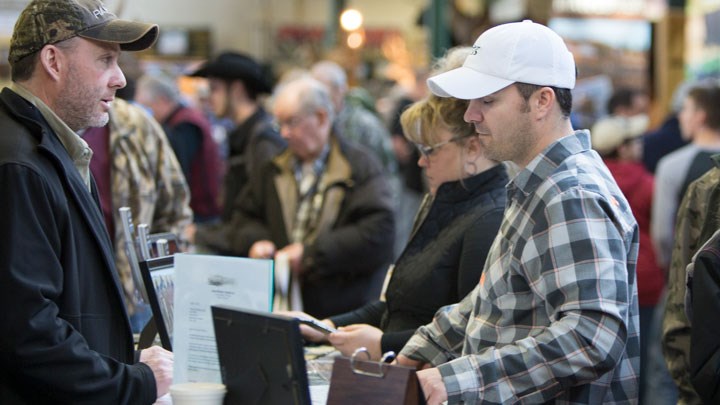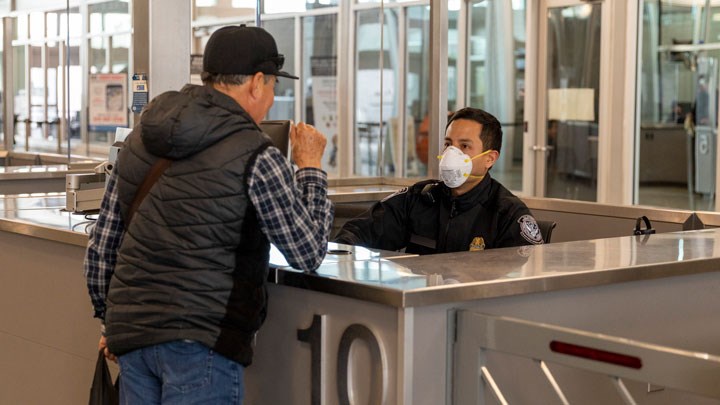
by Max Prasac - Friday, January 6, 2023

As hunters get set for the 2023 hunting show season—the NRA’s Great American Outdoor Show and the Dallas Safari Club, Houston Safari Club and Safari Club International conventions—many hunters already have a list of places they’re dreaming of hunting, some halfway across the country and others halfway across the world. But while going on safari can be an incredible, life-altering experience, it’s also a long way to travel, and a big hit on your wallet. It’s a trip that requires major logistical planning, lots of paperwork and months of preparation. And that’s just the act of getting there and back, not to mention the actual hunt. So, if you’re a new hunter or new to traveling to go on safari, make sure that the experience is positive by avoiding some potential pitfalls. I’ve compiled a few tips and suggestions for you to consider so you can make sure that your first safari is one that will conjure nothing but happy memories.
First and foremost, make sure that you are hunting with a reputable outfitter. It is not impolite to request references, and any professional outfit worth its salt will be prepared to provide them. Look for success rates and customer satisfaction. It’s your money and your imperative, so don’t be afraid to ask questions.
Check to see if the country you intend to hunt requires a visa, and while you are at it, look to see if there are any travel advisements from the U.S. State Department regarding the country you’re choosing to hunt. Your deeply discounted safari may be taking place in an area rife with civil unrest—something you probably should avoid in the name of self-preservation. There may be a good reason for the discount rates, but if your outfitter is not being forthright with you, clearly you do not want to hunt with him.
Next on your due diligence list is the airline you choose. You will want to check for firearm protocol and connecting flights (partly as the country you connect in may not be firearm friendly). Prior to your trip, you will need to fill out U.S. Customs form 4457 (Certificate of Registration for Personal Effects Taken Abroad) for your firearms and other high-value equipment and present the described articles and completed form to a U.S. Customs and Border Protection officer to sign. This form is your proof of ownership of those items. Have multiple copies with you to play safe. (To read the NRA Hunters’ Leadership Forum article walking you through Form 4457, click here.)
Ensure the name on your firearm document, customs forms, airline documents, etc., match your passport. This will make sure that entering and exiting a foreign country—and reentering the United States—goes smoothly for both you and the customs agent. A good outfitter will point you in the right direction as to what you will need for paperwork.

While we are discussing paperwork, it is a good idea to hire a “meet and greet” service prior to departure. The service will make sure your paperwork is filled out properly and is not missing vital information. This is some of the best money you can spend. Between the outfitter and meet-and-greet, your legal entry into the country you are hunting should be covered in its entirety without any surprises. The service also will have a representative meet you at the airport, get you and your firearms into the country without a hitch and take you to your next stop.
While in country and hunting, you need to be aware of some other unique potential pitfalls. Worldwide hunting laws require a license to hunt legally. If your outfitter completes the license in the name of only one hunter (for the claim of saving your group money), the others in your group will not have hunted legally and, therefore, would be poaching. Ignorance of the laws will only take your defense so far. The outfitter pockets the license money that is literally a part of every hunting package sold. Be aware of this scam as it is more prevalent than you can imagine.
Your hunt is over, and now you are thinking about taxidermy. Wrong, you thought about that long before you left on this trip and planned it out as part of your due diligence. Your taxidermist should be chosen like your outfitter. You should not hesitate to ask for references and to see examples of his or her work. Decide if you will have the taxidermy done in the country of origin or back in the United States. Note that this can affect the cost of shipping (due to weight) significantly. If you are having your animals mounted in the United States, get identification tags from your taxidermist with your name and the taxidermist’s name and shipping address to attach to each game animal you take. It is your responsibility to ensure that all export paperwork for trophies is compliant with U.S. Fish and Wildlife Service policies. This ultra-complicated process can be handled in its entirety through the services provided by companies such as Safari Specialty Importers, allowing the hunter to enjoy the hunt and leave the entire taxidermy import process in the hands of someone who knows how the system works inside and out. It’s worth the price you pay.
Two last thoughts. Medevac insurance is a really good idea. You may not worry about your own disposition, but you should be concerned for the sake of your family if nothing else. Make sure your service will come and pull your bacon out of the fire if necessary and get you to safety or to a place to receive medical attention. Lastly, practice, practice and practice some more with the firearm or bow you plan to take with you. This expensive and complicated sojourn is really all in support of your actual boots-on-the-ground hunt. Do yourself a favor and get prepared by achieving satisfactory competence with your equipment. It’ll make the experience that much sweeter.
E-mail your comments/questions about this site to:
[email protected]
